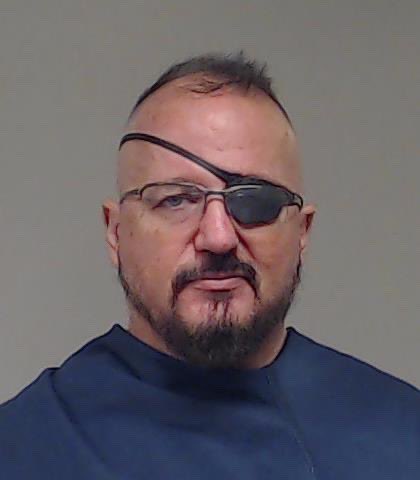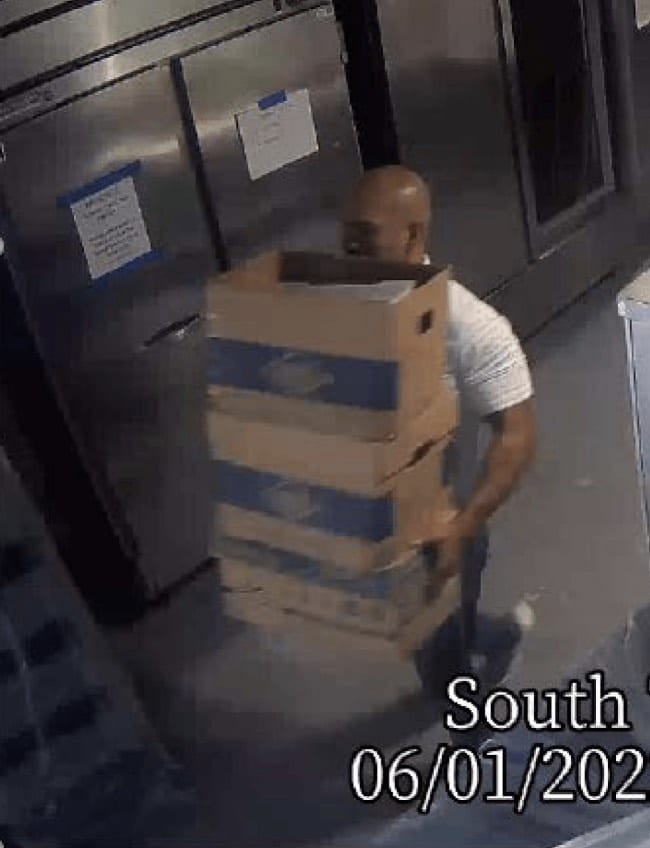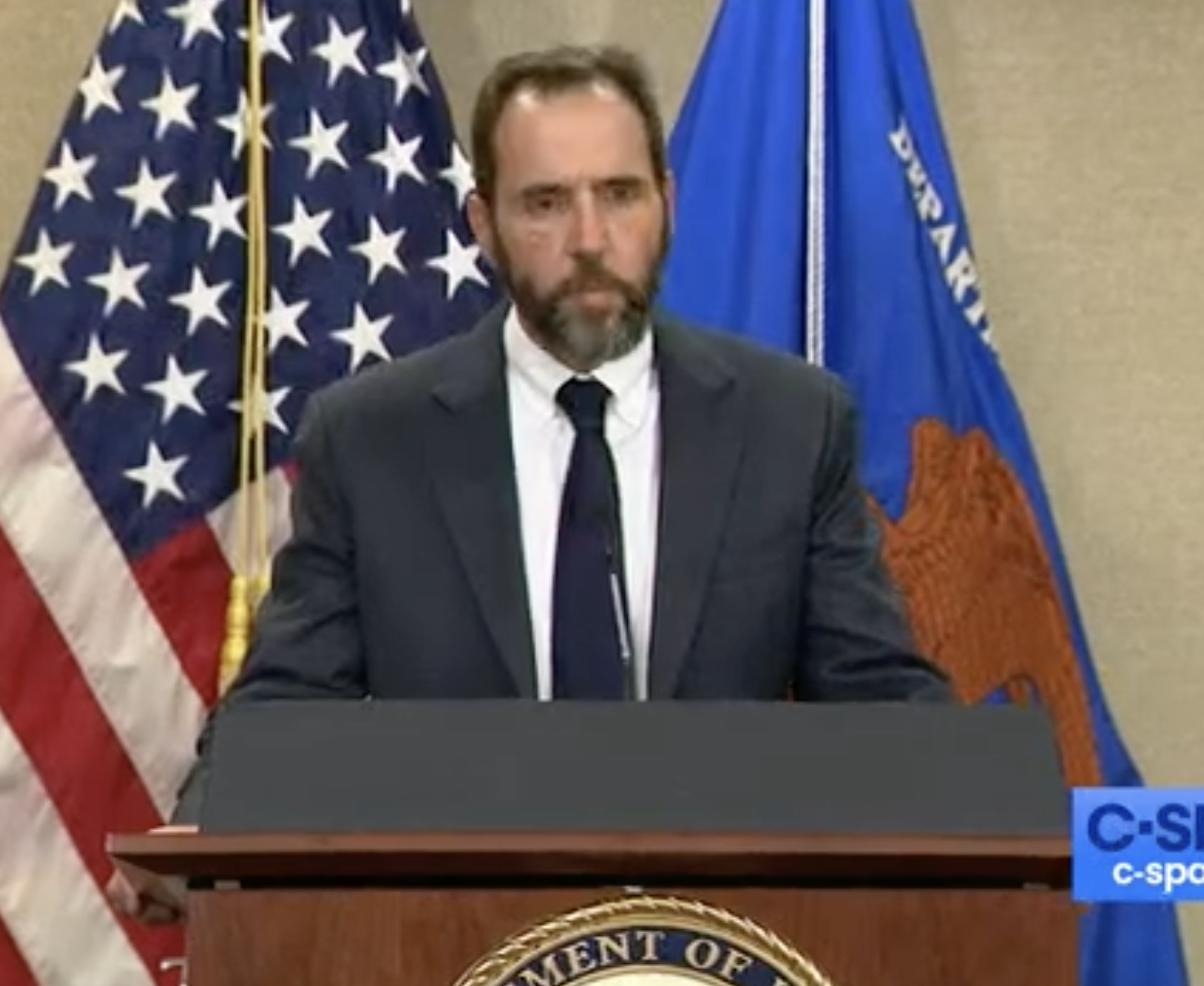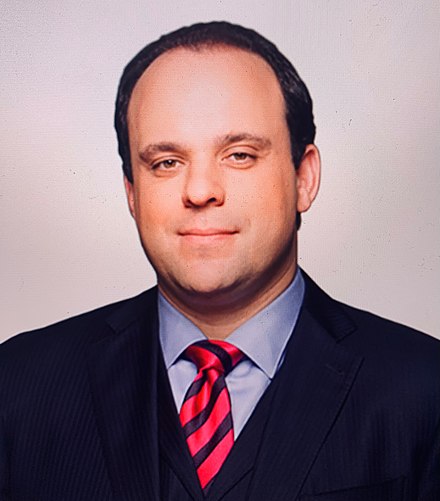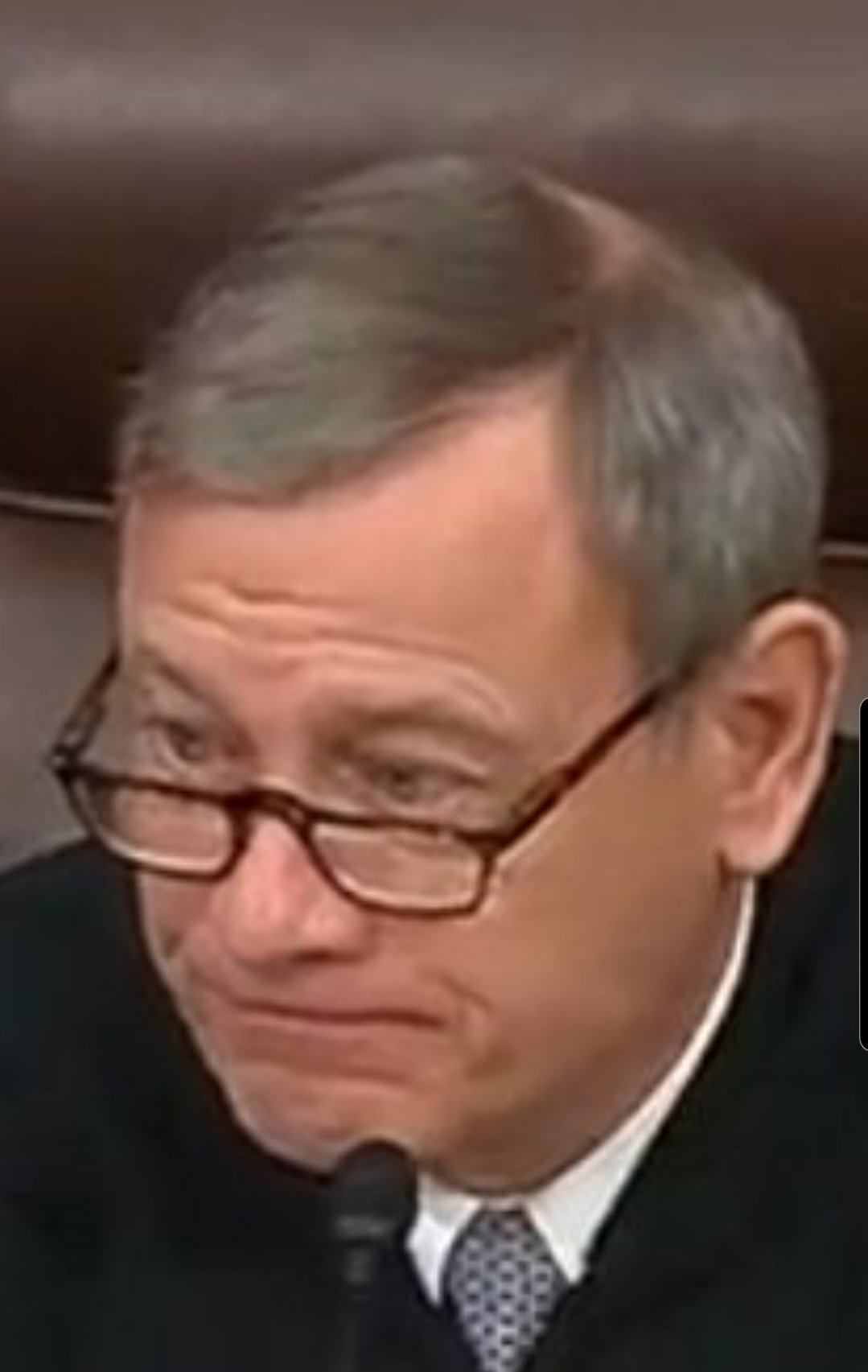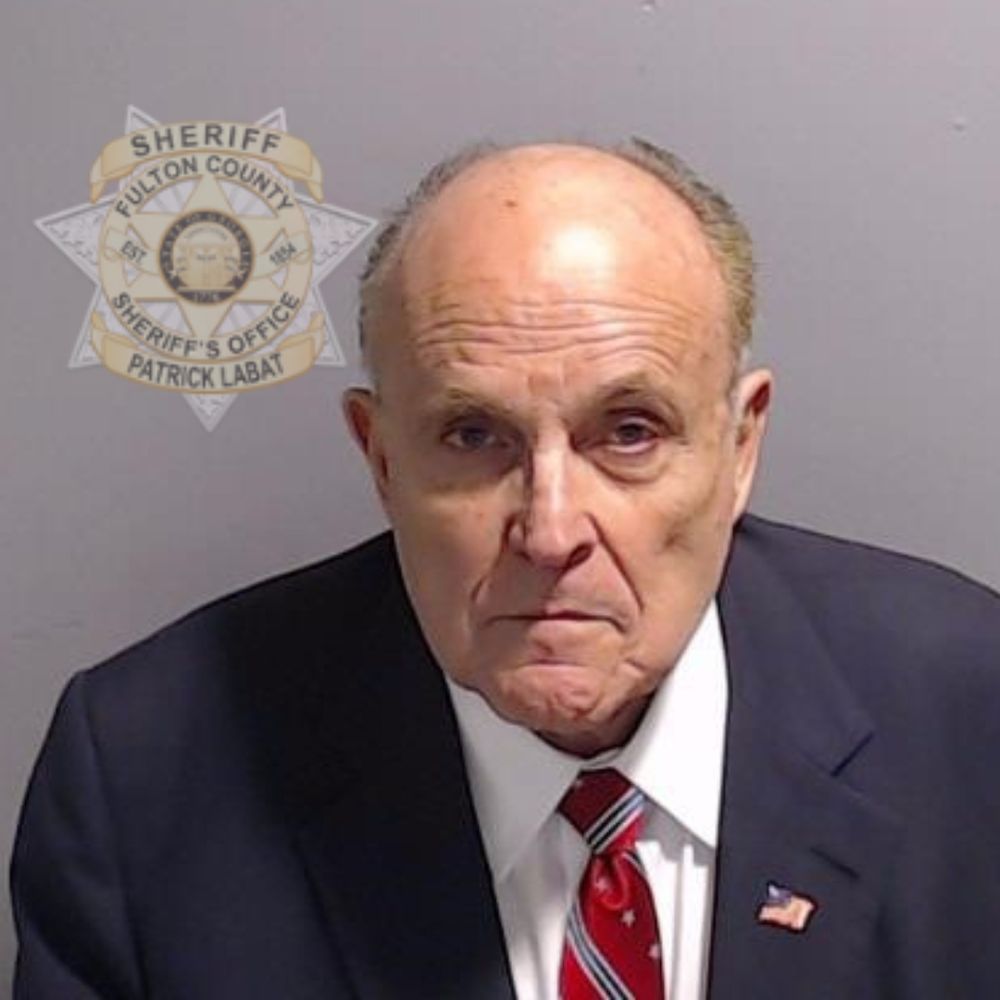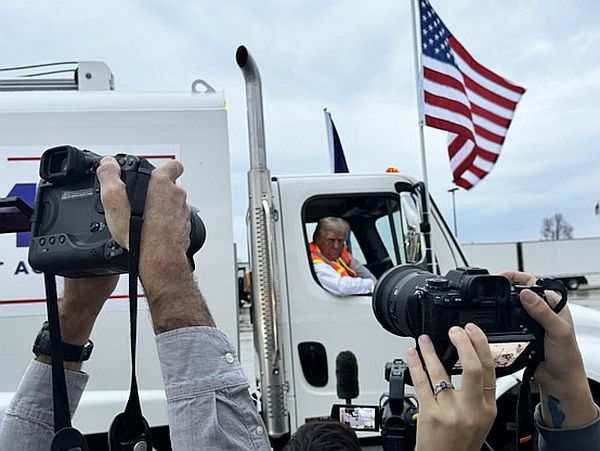I’ve been thinking a lot about Donald Trump’s second impeachment.
As we approach the election with Trump still facing a decent (though declining) chance of winning, a lot of justifiably worried people are again choosing to spend their time whinging about Merrick Garland rather than doing something constructive to help defeat Trump.
There remains a belief that it was Garland’s job — and that Garland had the power — to disqualify Trump from running this race.
A remarkable instance is Rachel Bitecofer, a PoliSci professor who has written on negative partisanship, the way in which people vote against something rather than necessarily for something.
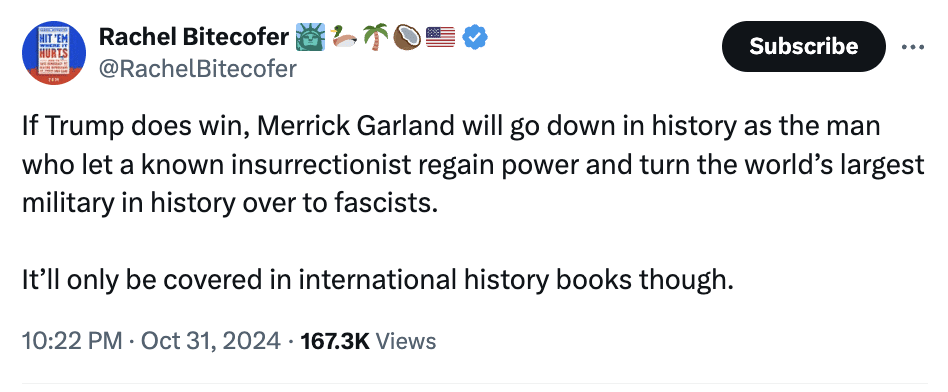
That Bitecofer is spending days in advance of the election doing PR for John Roberts is especially inexcusable because her using partisan anger to get them to vote.
Days before the election, she falsely told voters to be mad about Merrick Garland rather than mad about John Roberts, the guy who is directly responsible for eight months of delay, or Mitch McConnell, the guy with primary responsibility for disqualifying Trump.
She’s breaking her own rule.
That’s one reason I’ve been thinking about the January 6 impeachment: because, in fact, it was McConnell’s job to disqualify Trump from running this race, and McConnell chickened out. Oh, I think there are things that might have altered the outcome of impeachment. Most notably, I think Nancy Pelosi made a mistake in not appointing Liz Cheney to the prosecution team. That would have given Cheney an earlier opportunity to play the formidable leadership role that she later played on the January 6 Committee. Cheney, as a member of GOP leadership, was witness to conversations involving Mike Johnson and Kevin McCarthy that might have tipped the decision to call witnesses. And as her support for Kamala Harris’ campaign has shown, she has the stature to persuade Republicans to put country over party.
But I’m also thinking about why that impeachment failed. Republicans offered two kinds of excuses, one procedural and one evidentiary. Procedurally, McConnell and others argued, they didn’t have the authority to impeach Trump after he left office.
It was a cop out, but — as we’ll see — one that played a role in the immunity decision.
Trump also made some evidentiary arguments against the claim that Trump incited the attack. Trump argued, for example, that rioters planned their attack in advance, and so couldn’t have been incited by Trump.
Despite going to great lengths to include irrelevant information regarding Mr. Trump’s comments dating back to August 2020 and various postings on social media, the House Managers are silent on one very chilling fact. The Federal Bureau of Investigation has confirmed that the breach at the Capitol was planned several days in advance of the rally, and therefore had nothing to do with the President’s speech on January 6th at the Ellipse. According to investigative reports all released after January 6, 2021, “the Capitol Police, the NYPD and the FBI all had prior warning there was going to be an attack on the Capitol…” 14
14 Ian Schwartz, John Solomon: Capitol Riot Was A “planned Attack,” Can’t Blame Trump; What Did Pelosi and McConnell Know?, Real Clear Politics (Jan. 13, 2021), https://www.realclearpolitics.com/video/2021/01/13/john_solomon_capitol_riot_was_a_planned_attack_c ant_blame_trump_what_did_pelosi_mcconnell_know.html
Leaning almost entirely on the presence of provocateur John Sullivan at the riot, Trump argued that because rioters had motives other than to support Trump, Trump couldn’t have been responsible.
The real truth is that the people who criminally breached the Capitol did so of their own accord17 and for their own reasons, and they are being criminally prosecuted. 18
17 Some anti-Trump, some ani-government. See, e.g., Alicia Powe, Exclusive: “Boogaloo Boi” Leader Who Aligns with Black Lives Matter, Gateway Pundit, (Jan. 17, 2021), https://www.thegatewaypundit.com/2021/01/boogaloo-boi-leader-aligns-black-lives-matter-boastedorganizing-armed-insurrection-us-capitol/. “The goal of swarming the home of the U.S. House of Representatives and Senate is “to revel in the breach of security while mocking the defenses that protect tyrants…whether that be Trump or others.” See also Robert Mackey, John Sullivan, Who Filmed Shooting of Ashli Babbitt, The Intercept (Jan. 14, 2021), https://theintercept.com/2021/01/14/capitol-riot-john-sullivan-ashli-babbitt/ (“The rapper, who later retweeted a brief video clip of himself and Sullivan inside the Rotunda that was broadcast live on CNN, told me in an Instagram message … “I’m far from a Trump supporter…I really don’t even get into politics at all. It was an experience for me and that’s really the only reason I was there.”)
18 See, e.g., Tom Jackman, Marissa J. Lank, Jon Swaine, Man who shot video of fatal Capitol shooting is arrested, remains focus of political storm, Washington Post (Jan. 16, 2021), https://www.washingtonpost.com/nation/2021/01/16/sullivan-video-arrested/.
Trump repeatedly treated his use of the word “fight” as figurative.
Of the over 10,000 words spoken, Mr. Trump used the word “fight” a little more than a handful of times and each time in the figurative sense that has long been accepted in public discourse when urging people to stand and use their voices to be heard on matters important to them; it was not and could not be construed to encourage acts of violence Notably absent from his speech was any reference to or encouragement of an insurrection, a riot, criminal action, or any acts of physical violence whatsoever. The only reference to force was in taking pride in his administration’s creation of the Space Force. Mr. Trump never made any express or implied mention of weapons, the need for weapons, or anything of the sort. Instead, he simply called on those gathered to peacefully and patriotically use their voices. [emphasis original]
Most crucially, Trump noted that the attack on the Capitol started before he finished speaking.
A simple timeline of events demonstrates conclusively that the riots were not inspired by the President’s speech at the Ellipse. “The Capitol is 1.6 miles away from Ellipse Park which is near the White House. This is approximately a 30-33 minute walk. Trump began addressing the crowd at 11:58 AM and made his final remarks at 1:12 PM… Protesters, activists and rioters had already breached Capitol Grounds a mile away 19 minutes prior to the end of President Trump’s speech.”20
Trump also complained that the House Democrats used news reports of the rioters’ actions, rather than legal documents.
Some of these excuses are flimsy. Most rely on a rupture between the law prohibiting incitement, which prohibits both inciting an insurrection but also “set[ting] on foot, assist[ing], or engag[ing]” in insurrection, and the holding in Brandenburg, which limited incitement to those stoking imminent illegal action. Those who claim that Trump committed a crime in plain sight would have to rebut these defenses.
In the January 6 Committee’s incitement referral, the argument shifted away from arguing that Trump incited insurrection with just his speech, focusing more on Trump’s failure to stop the riot. They argued:
- Trump summoned a mob and then further provoked the already rioting mob with his Tweet targeting Mike Pence.
- Two of the rioters described their actions in terms of Trump’s orders.
- After the riot was already started, Trump refused to take action to protect the Capitol.
- Trump told close aides that Mike Pence deserved the chants threatening to hang him.
- Trump has since — starting as early as September 2022, before either sedition trial — promised to pardon the rioters.
J6C did good work, but this insurrection referral was just as thin as their obstruction one. Their citation to January 6ers still relied on press reports rather than court records. And rather than relying on Oath Keeper Kelly Meggs’ hunt for Nancy Pelosi — Meggs had been convicted of sedition a few weeks earlier — the report relies on Cleveland Meredith, who never made the insurrection. They don’t incorporate the excellent work J6C did to reconstruct how Trump ordered language targeting Mike Pence back into his speech after Pence refused the President’s entreaties to steal the election.
To be sure, at that point in December 2022, prosecutors were still working on the case that Trump incited the mob. The Proud Boy leaders’ trial — which J6C’s decision to withhold their transcripts had delayed three months — wouldn’t start until early the next month and wouldn’t conclude until May 2023. And it would take another five months, until April 2023, for DOJ to present their best evidence that Trump incited someone at his speech — Danny Rodriguez — to go attack the Capitol and tase Michael Fanone; in the wake of Fischer, however, the sentences of Rodriguez’ co-conspirators have been sharply reduced. People complain that DOJ focused on the crime scene, but before you could even consider incitement, you’d have to account for the Proud Boys and people like Rodriguez.
Before SCOTUS started rewriting the laws applying to January 6, prosecutors were prepared to show specifics about Trump’s culpability for the attack. This is how Jack Smith’s team described Trump’s responsibility for his mob almost exactly a year ago.
Ultimately, the defendant’s three conspiracies culminated and converged when, on January 6, the defendant attempted to obstruct and prevent the congressional certification at the Capitol. One of the ways that the defendant did so, as alleged in the indictment, was to direct an angry crowd of his supporters to the Capitol and to continue to stoke their anger while they were rioting and obstructing the certification.
At trial, the Government will prove these allegations with evidence that the defendant’s supporters took obstructive actions at the Capitol at the defendant’s direction and on his behalf. This evidence will include video evidence demonstrating that on the morning of January 6, the defendant encouraged the crowd to go to the Capitol throughout his speech, giving the earliest such instruction roughly 15 minutes into his remarks; testimony, video, photographic, and geolocation evidence establishing that many of the defendant’s supporters responded to his direction and moved from his speech at the Ellipse to the Capitol; and testimony, video, and photographic evidence that specific individuals who were at the Ellipse when the defendant exhorted them to “fight” at the Capitol then violently attacked law enforcement and breached the Capitol.
The indictment also alleges, and the Government will prove at trial, that the defendant used the angry crowd at the Capitol as a tool in his pressure campaign on the Vice President and to obstruct the congressional certification. Through testimony and video evidence, the Government will establish that rioters were singularly focused on entering the Capitol building, and once inside sought out where lawmakers were conducting the certification proceeding and where the electoral votes were being counted. And in particular, the Government will establish through testimony and video evidence that after the defendant repeatedly and publicly pressured and attacked the Vice President, the rioting crowd at the Capitol turned their anger toward the Vice President when they learned he would not halt the certification, asking where the Vice President was and chanting that they would hang him. [my emphasis]
A year ago, prosecutors promised to prove that Trump sent his mob to the Capitol, where many of the people Trump had told to “fight” assaulted cops. They have argued for over a year that the mob was the tool that Trump used to obstruct the vote certification.
Last month, subsequent to Fischer, Jack Smith’s argument changed a bit. He relied more on an aid and abet theory of Trump’s liability for his mob’s actions.
Contrary to the defendant’s claim (ECF No. 255 at 7) that he bears no factual or legal responsibility for the “events on January 6,” the superseding indictment plainly alleges that the defendant willfully caused his supporters to obstruct and attempt to obstruct the proceeding by summoning them to Washington, D.C., and then directing them to march to the Capitol to pressure the Vice President and legislators to reject the legitimate certificates and instead rely on the fraudulent electoral certificates. See, e.g., ECF No. 226 at ¶¶ 68, 79, 82, 86-87, 94. Under 18 U.S.C. § 2(b), a defendant is criminally liable when he “willfully causes an act to be done which if directly performed by him or another would be” a federal offense. See, e.g., United States v. Hsia, 176 F.3d 517, 522 (D.C. Cir. 1999) (upholding a conviction for willfully causing a violation of 18 U.S.C. § 1001).
One way or another, however, as charged Jack Smith is relying on the 18 USC 1512(c)(2) charges to tie Trump to his mob. DOJ needs to sustain at least some of the obstruction charges against crime scene defendants to make this stick. And an opinion from Beryl Howell, freeing two Proud Boys from prison based on her judgment that nothing they did at the Capitol impaired the availability or integrity of the electoral certificates, will make that harder to do.
But let’s go back to whether Merrick Garland — or DOJ prosecutors who spent 30 months showing that Trump incited people like Danny Rodriguez to go nearly murder Michael Fanone, or Jack Smith — could then prove that Trump incited an insurrection.
In August 2023, when Smith indicted Trump, it was not clear he could do that. At the least, he faced the likelihood that Trump would argue his acquittal immunized him from being charged criminally. Indeed, even though Smith didn’t charge Trump with inciting an insurrection, he nevertheless sustained that argument all the way to the Supreme Court, causing precisely the delay that people like Bitecofer blame on Garland.
But in the last year, SCOTUS did three things to clarify the issue. As noted, SCOTUS interpreted 18 USC 1512(c)(2) in a way that may imperil Smith’s ability to tie Trump to the actions the mob took via his obstruction charge.
Even before that, on March 4, a unanimous Supreme Court held that the only way Merrick Garland could disqualify Trump from taking office — and technically he still could — would be to convict him 18 USC 2383.
Instead, it is Congress that has long given effect to Section 3 with respect to would-be or existing federal officeholders. Shortly after ratification of the Amendment, Congress enacted the Enforcement Act of 1870. That Act authorized federal district attorneys to bring civil actions in federal court to remove anyone holding nonlegislative office—federal or state—in violation of Section 3, and made holding or attempting to hold office in violation of Section 3 a federal crime. §§14, 15, 16 Stat. 143–144 (repealed, 35 Stat. 1153–1154, 62 Stat. 992–993). In the years following ratification, the House and Senate exercised their unique powers under Article I to adjudicate challenges contending that certain prospective or sitting Members could not take or retain their seats due to Section 3. See Art. I, §5, cls. 1, 2; 1 A. Hinds, Precedents of the House of Representatives §§459–463, pp. 470–486 (1907). And the Confiscation Act of 1862, which predated Section 3, effectively provided an additional procedure for enforcing disqualification. That law made engaging in insurrection or rebellion, among other acts, a federal crime punishable by disqualification from holding office under the United States. See §§2, 3, 12 Stat. 590. A successor to those provisions remains on the books today. See 18 U. S. C. §2383.
And thanks to Trump’s own argument about impeachment, SCOTUS has clarified that he can be charged with 18 USC 2383. Sonia Sotomayor cited Mitch McConnell’s cop out in her dissent in the impeachment case.
Indeed, Trump’s own lawyers during his second impeachment trial assured Senators that declining to impeach Trump for his conduct related to January 6 would not leave him “in any way above the law.” 2 Proceedings of the U. S. Senate in the Impeachment Trial of Donald John Trump, S. Doc. 117–2, p. 144 (2021). They insisted that a former President “is like any other citizen and can be tried in a court of law.” Ibid.; see also 1 id., S. Doc. 117–3, at 339 (Trump’s impeachment counsel stating that “no former officeholder is immune” from the judicial process “for investigation, prosecution, and punishment”); id., at 322–323 (Trump’s impeachment counsel stating: “If my colleagues on this side of the Chamber actually think that President Trump committed a criminal offense . . . [a]fter he is out of office, you go and arrest him”). Now that Trump is facing criminal charges for those acts, though, the tune has changed. Being treated “like any other citizen” no longer seems so appealing. In sum, the majority today endorses an expansive vision of Presidential immunity that was never recognized by the Founders, any sitting President, the Executive Branch, or even President Trump’s lawyers, until now. Settled understandings of the Constitution are of little use to the majority in this case, and so it ignores them.
John Roberts didn’t address the cop out in his majority opinion, but he did say that if the political process of impeachment failed for whatever reason — including failing to “muster the political will to impeach” (which sure sounds like why McConnell failed) — the criminal process remained open.
The implication of Trump’s theory is that a President who evades impeachment for one reason or another during his term in office can never be held accountable for his criminal acts in the ordinary course of law. So if a President manages to conceal certain crimes throughout his Presidency, or if Congress is unable to muster the political will to impeach the President for his crimes, then they must forever remain impervious to prosecution.
Impeachment is a political process by which Congress can remove a President who has committed “Treason, Bribery, or other high Crimes and Misdemeanors.” Art. II, §4. Transforming that political process into a necessary step in the enforcement of criminal law finds little support in the text of the Constitution or the structure of our Government
Whatever else SCOTUS did, on July 1, 2024, almost a full year after Smith charged Trump, John Roberts clarified that Smith could charge Trump with insurrection.
If Jack Smith had charged Trump with inciting insurrection on August 2023, the case still would have gone to SCOTUS. Given what a hack John Roberts is, he might have fought harder to avoid creating the following set of rules covering Trump. But between the three opinions this year, Roberts has held that:
- Obstruction may be a reach for January 6, particular a conspiracy between Trump and his mob to obstruct the vote certification
- Insurrection remains good law and the law disqualifies someone from serving as President
- Trump’s acquittal on insurrection does not preclude him being charged with it
The legal questions about whether Merrick Garland could disqualify Trump from running were not resolved until August 7, and the evidentiary questions will not be decided for months yet.
More importantly, those claiming that DOJ could have charged Trump right away are missing a great many steps that had to happen first:
- DOJ had to prosecute all the crime scene defendants — people like Danny Rodriguez — it will use to prove that Trump incited rioters; with Rodriguez, that was held up by COVID, the evidentiary challenges, and his own legal challenges to using his own confession against him. In the case of Rodriguez’ co-conspirator, that took until April 2023.
- DOJ had to resolve the Proud Boy leaders’ case to explain Trump’s relationship to the riot that kicked off even as he was still speaking, which — even though Tarrio’s phone was seized before January 6 — took until May 2023.
- DOJ had to obtain Executive Privilege-waived testimony from (at a minimum) Greg Jacob (who predicted violence), Stephen Miller (to get his testimony regarding the speech), Dan Scavino (to confirm details about the Tweet targeting Pence), and Mike Pence himself. Those challenges started when DOJ subpoenaed Jacob on June 15, 2022, and necessarily proceeded by steps, until Smith obtained Pence’s testimony on April 27, 2023.
- DOJ had to exploit the phone used by Trump on January 6; it’s unclear when that happened.
- DOJ had to force Elon Musk’s Twitter to comply with a warrant for Trump’s Twitter account. He stalled for 23 days in January and February 2023.
- DOJ would probably need the contents of Mike Roman’s phone, which show him egging on a colleague to “Make them riot” at the TCF counting center in Detroit, and Boris Epshteyn’s phone, which implicates Steve Bannon in the conspiracy and through him makes Bannon’s prediction that “All Hell is going to break loose tomorrow” part of the conspiracy. Those phones were seized in September 2022, but I have argued that Roman and Bannon’s belated treatment as conspirators may suggest it took longer than 11 months to exploit those phones (which was known to happen with Enrique Tarrio and Scott Perry’s phones).
As I keep laying out, we know how long the investigation took. We know it took 14 months before the first crime scene defendants could be tried. We know it took over a year to exploit Tarrio’s phone. We know J6C caused at least three months of delay by withholding transcripts. We know it took ten months to get privilege-waived testimony from necessary witnesses.
And we know that John Roberts chose to delay the legal questions from December 2023 until August 2024, eight months.
Merrick Garland might yet charge Trump with insurrection. He might need to, to sustain the tie between Trump and his mob. But we have a pretty clear understanding of why that didn’t happen, couldn’t have happened, before tomorrow’s election.

